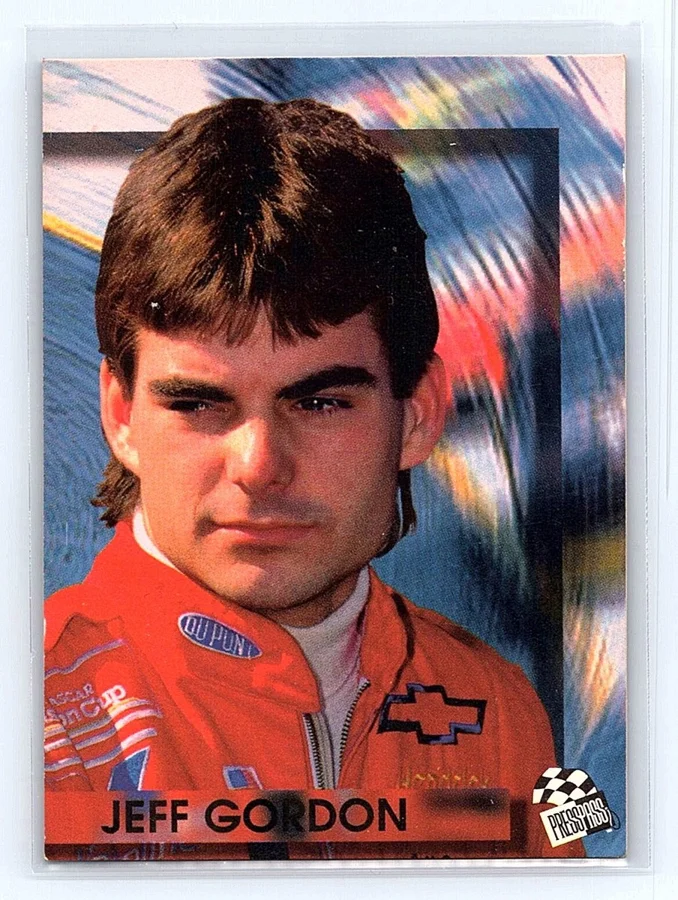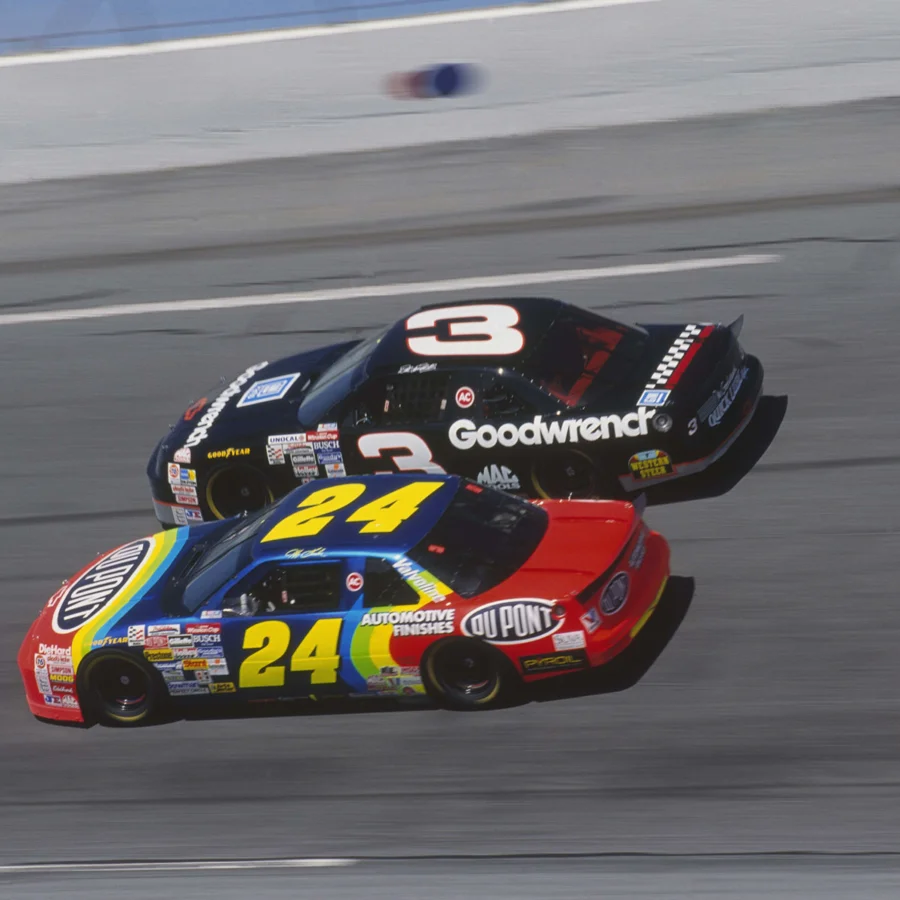The Jeff Gordon Bristol rivalry history stands as one of the most intense and frequently discussed feuds in NASCAR, with Bristol Motor Speedway being the site of many heated moments. This prolonged battle between Jeff Gordon and Rusty Wallace shaped an era in stock car racing, captivating fans with its mix of raw ambition, controversial tactics, and career-defining confrontations.
A Rivalry Ignites: The First Major Clash at Bristol
The fierce competition between Jeff Gordon and Rusty Wallace reached a tipping point in 1997 at Bristol. Gordon, driving on older tires but gaining rapidly, found his opportunity as a slower car hindered Wallace‘s progress. Executing the classic Bristol “bump and run,” Gordon tapped Wallace’s rear in turn three, moving the number 2 car up the banking and seizing the lead for a dramatic victory. Wallace’s reaction after the race hinted at lingering disappointment rather than outright anger, but this was the spark that truly ignited their rivalry.
The feud intensified with subsequent incidents, especially notable at Richmond in 1998 when Rusty Wallace intentionally wrecked Gordon as retribution for the Bristol event. Wallace later admitted his actions were “payback” for losing the 1997 Bristol race in such controversial fashion. Their confrontations continued, and tempers flared again three years later at Richmond, where Wallace made aggressive contact with Gordon during a restart, further stoking hostilities. After that turbulent encounter, Jeff Gordon openly expressed his frustration:

He body-slammed me pretty good, and I got pretty mad at him,
—Jeff Gordon, Driver
There was no reason for him to slam me.
—Jeff Gordon, Driver
The Final Bristol Showdown: History Repeats in 2002
The rivalry that began on the Bristol short track saw its conclusion there as well, during an unforgettable night race in 2002. Both champions, each enduring rare winless streaks, found themselves at the front of the pack once again. With just three laps remaining, Wallace was leading, but as in the past, slower lapped traffic gave Gordon the chance to close in. Not hesitating, Gordon repeated his previous tactic, bumping Wallace’s car aside to recapture the lead and ultimately break his own losing slump. The move led to visible tension post-race, as the two drivers drove slowly beside one another in a silent acknowledgment of their rivalry before Gordon celebrated in victory lane, while Wallace fielded questions in the pit.
It’s been a long time since I won, but it’s been a long time since Jeff won, too, and he wanted it bad. I guess my day’s coming. I got nailed in the rear end and got turned sideways, and I didn’t expect it. I was trying hard to knock the f*** out of him, but I could never get to him.
—Rusty Wallace, Driver
This episode marked the end of their headline showdowns at Bristol, but the story wasn’t quite over. Wallace wouldn’t end his winless streak until 2004 at Martinsville, a sign of how deeply this rivalry had influenced their paths.
Legacy and Lasting Impact on NASCAR
At the conclusion of the 2003 season, Rusty Wallace recorded his lowest points finish in over a decade, dropping to 14th. He exited the premier series in 2005, securing eighth place in his final standings. Meanwhile, Tony Stewart was getting ready to start his fifteenth full-time season and claimed his second career championship, while Jeff Gordon, after 2001, never added another title to his name. The period defined by the Jeff Gordon Bristol rivalry history showcased the fierce spirit of two champions who pushed each other to extremes, leaving a legacy that continues to fuel conversations among NASCAR fans and ensuring both drivers’ places in the sport’s lore.
